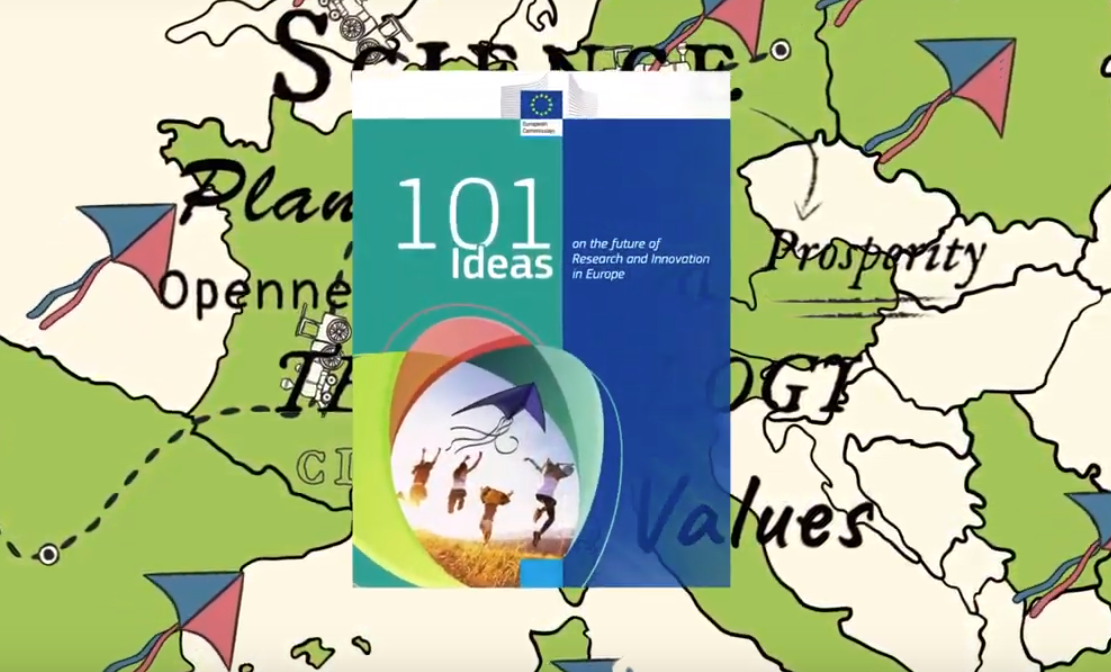By taking inspiration from President Juncker’s wish to have a wide and open debate on the Future of Europe, the RISE (Research Innovation and Science Experts) and the ERIS (Expert Group on societal impact of research and innovation) spent one year across Europe for a series of meetings to stimulate the discussion and collect different perspectives on the future of research and innovation policy across the continent. This ‘Tour d’Europe’ resulted in the publication of the book “101 Ideas in the future of Research and Innovation in Europe” which includes a full array of thoughts and ideas, reflecting national perspectives and individual histories of research and innovation in each country.
Among the ideas, the publication highlights that it takes a long time to build innovation capacity, to learn how to interact with investors and execute ideas. Start-ups need space to grow and a collaboration with global companies can support start-ups and SMEs in entering into global value chains and foreign markets. SMEs therefore need time and support to connect with pan-European networks. The European Innovation Council can play a role on this regard providing broader supports related to building skills and networks and increasing access to ‘patient capital’.
Furthermore involved stakeholders agreed on the need to move away from measuring EU successes by comparison with China and the United States and to focus on new generation’s values. They highlight the importance of i) a welfare state, an open society and a strong and independent Europe that can represent them globally, ii) public investments generating outcomes benefitting all Europeans.
The diverse discussions across Europe also focused on the technological development that is increasingly influencing our lives and the society we live in. According to the experts Europe must give a direction to these technologies and their use and deployment, to shape the future. In order to do this they say “we will need more contributions from the ‘forgotten’ sciences: humanity and ethics.”
Discover more ideas by reading the whole publication available here.



